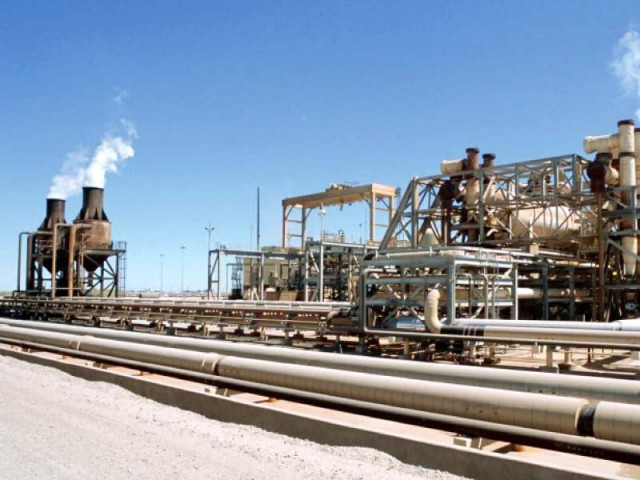Boosting revenues: Balochistan demands increase in Sui gas price
Its aim is to have better collection of royalty, gas surcharge

The director general of petroleum concession said Sui gas was a dry gas and LPG extraction may not be possible there. However, he would seek relevant input from the field operator PPL. PHOTO: FILE
The government of Balochistan has sought an increase in the price of gas being produced from the Sui field in an attempt to enhance its share in revenue collection on account of royalty and gas development surcharge (GDS).
The province came up with the demand in a meeting of a committee on October 15 in order to receive higher royalty following increase in the gas price, officials say.
However, representatives of the Ministry of Petroleum and Natural Resources, who were present in the meeting, argued that the impact of increase in the Sui gas price would be minimal on Balochistan’s share of royalty and GDS. Instead, they cautioned, the move would lead to a marked rise in consumer gas prices across the country.
The Balochistan finance secretary expressed the desire that different scenarios of royalty and GDS based on proposed gas prices should be prepared for a review of the committee in the next meeting.
The legal adviser of the province also voiced concern over articulation of the National Finance Commission (NFC) award.
In response, the director general of petroleum concession insisted that the NFC award was framed to protect the interest of Balochistan and under that formula the provincial government got substantial benefits annually.
He offered that price estimates could be shared with the committee members for their consideration.
The secretary of Balochistan government suggested that as a component of the development and investment plan, the installation of liquefied petroleum gas (LPG) plants may be considered in the province.
Apart from this, the proposal of flare gas production at the Sui field may also be reviewed for productive purposes. He sought details of flare gas production.
The director general of petroleum concession responded that Sui gas was a dry gas and LPG extraction may not be possible there. However, he gave assurances that he would seek relevant input from a technical team of Pakistan Petroleum Limited (PPL), which was working on the Sui field.
The legal adviser of Balochistan was of the view that the office of director general of petroleum concession should be reorganised in line with the National Electric Power Regulatory Authority (Nepra).
The DG responded that according to the 2012 policy, provincial representatives had been appointed and after decision on the budget for their salaries, the communication gap between the DG and provinces could be eliminated.
It was decided that the committee should recommend and support the proposal of converting the Sui mining lease into a development and production lease and its extension in favour of the existing operator PPL.
Legal modus operandi may be worked out once the committee agrees on relevant terms. It was also decided that the period of extension needed to be deliberated further, which could include negotiations for wellhead gas price, royalty, production bonus and social welfare.
The meeting participants gave support to the use of Petroleum Policy 2012 and Rules 2013 as base documents to discuss the price discounts.
The Ministry of Petroleum agreed to prepare different scenarios for the royalty and GDS based on the proposed gas prices for a review of the committee.
Published in The Express Tribune, November 8th, 2015.
Like Business on Facebook, follow @TribuneBiz on Twitter to stay informed and join in the conversation.



















COMMENTS
Comments are moderated and generally will be posted if they are on-topic and not abusive.
For more information, please see our Comments FAQ